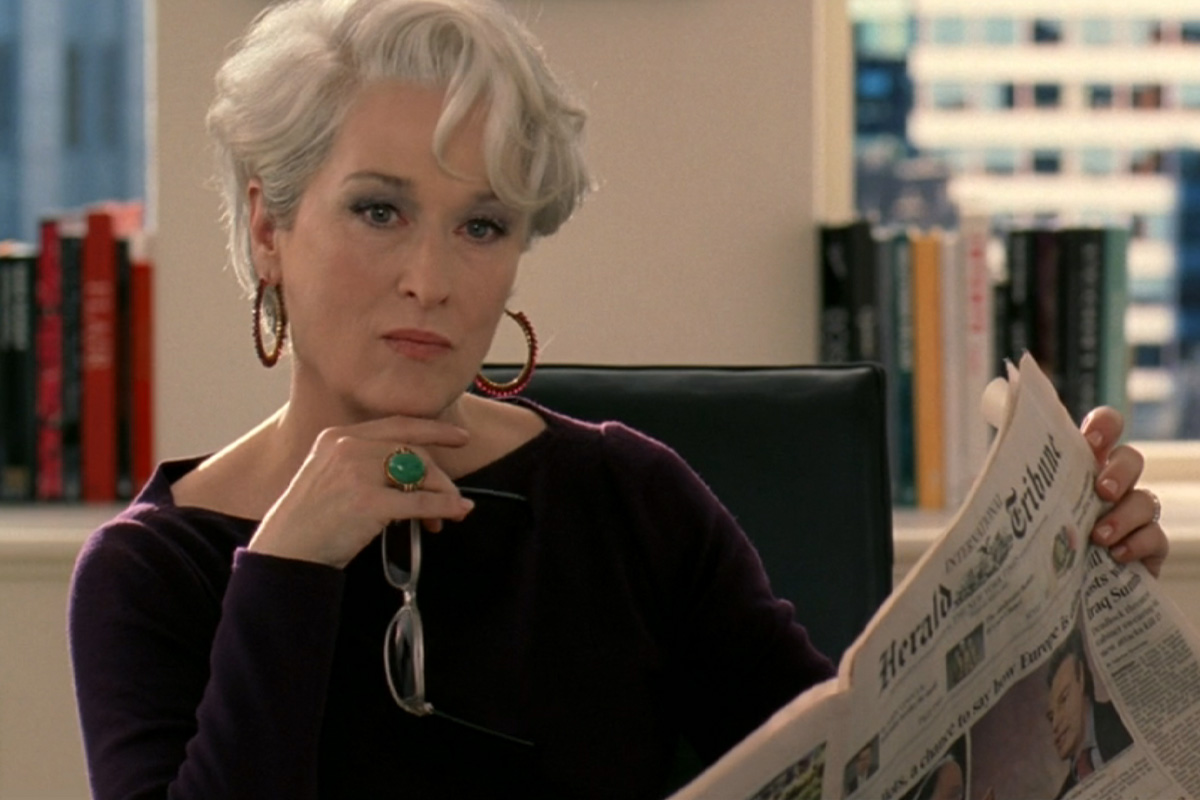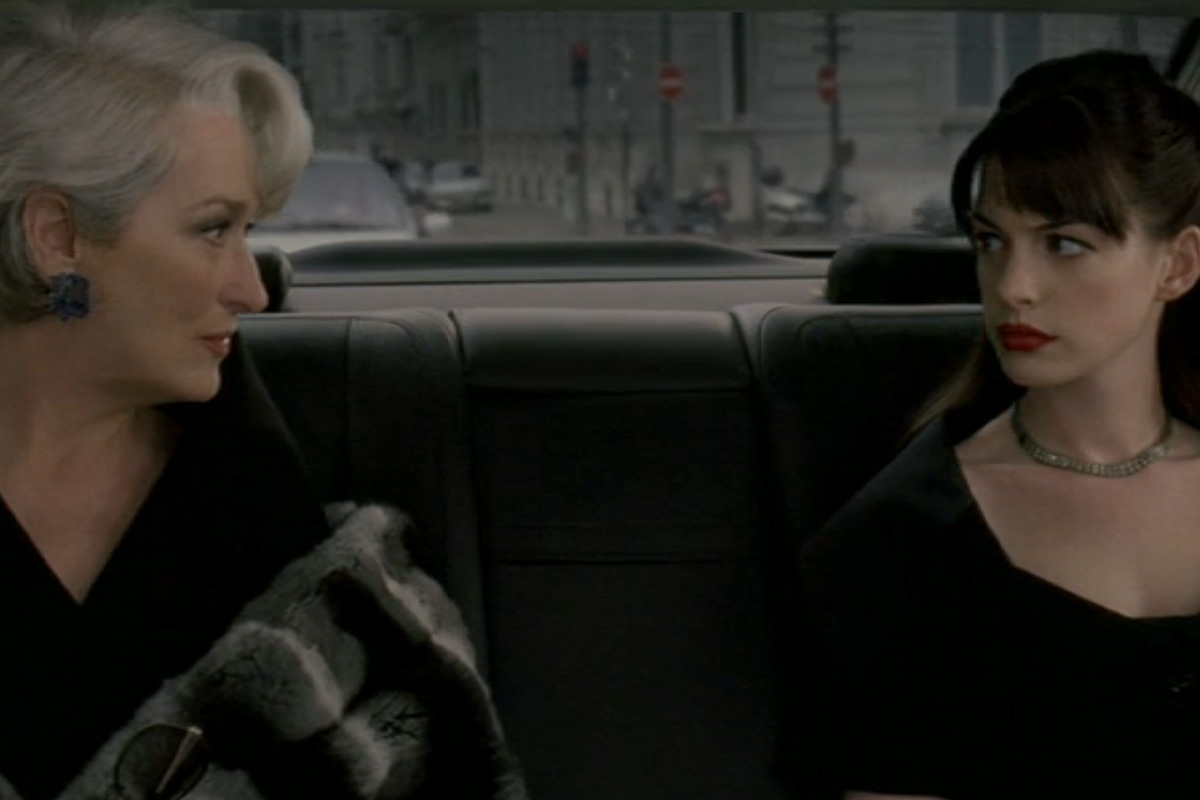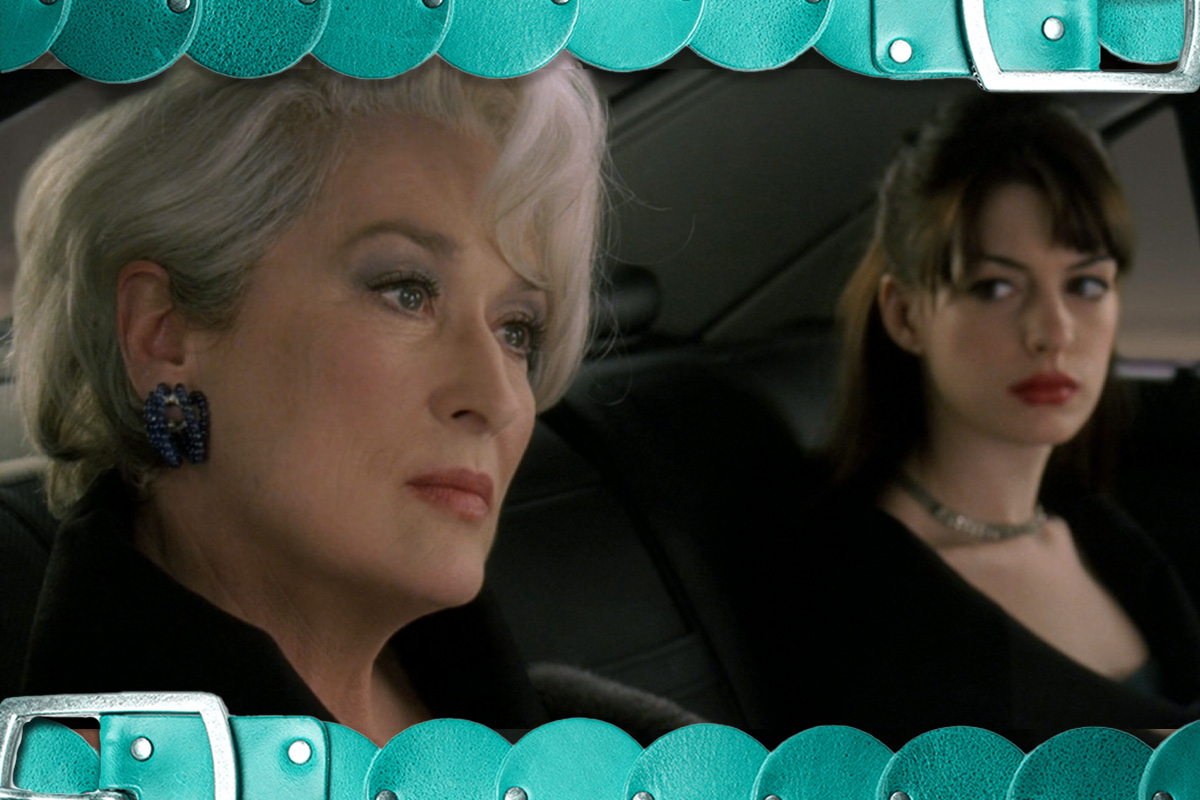Look, are any of the main characters in the movie adaptation of “The Devil Wears Prada” canonically queer or Jewish? No. Will that stop me from petitioning for this movie to be formally recognized as a queer Jewish masterpiece? Also no.
I’m assuming no one is going to debate this movie being a masterpiece. Because it is. So instead, I will focus on what makes it queer and Jewish.
Let’s take it back slightly. The year is 2003. Lauren Weisberger just published her debut novel, “The Devil Wears Prada.” The novel follows Andrea Sachs as she goes to work as assistant to Miriam Princheck, one of 11 children born to an Orthodox family, who rose from humble origins to the editor-in-chief of Runway magazine.
That doesn’t sound quite right, does it?
Well, per Weisberger’s novel, Miriam Princheck felt a name change was warranted in order to make it in the fashion industry, and so Miriam became Miranda Priestly, and with her new name came an entire image. An iconic one, as embodied by Meryl Streep a few years later in the movie.
What Weisberger never discussed, and what I intend to discuss today, was how gay Miranda Priestly is.
We’re talking movie from here on out, sorry book lovers, so brace yourselves.
So, right off the bat, Miranda meets Andy, and Mirandy is born. Well, not immediately. First Miranda has to relentlessly tease Andy with calls for “Ahn-drey-ah” and make a point of looking her up and down with what I can only describe as unabashed lust.

Second, movie Miranda has had three husbands, one of whom she divorces mid-movie. Okay, Goldilocks. No man is just right, is he?
Then, in one of the few moments of honesty and vulnerability from this ice queen of a character, what does she say to Andy? “You are very fetching.” From someone with this level of emotional constipation, this is essentially a marriage proposal.
And it’s not one-sided, either. Andy’s boyfriend Nate (everyone boo this man), says to Andrea at one point, “The person whose calls you always take, that’s the relationship you’re in. I hope you two are very happy together,” and while Nate can’t see how awful he is, at least he can spot a lesbian relationship.
At the time of writing, there are over 3,000 works in the Miranda Priestly/Andrea Sachs tag just on archiveofourown (the most popular fanfiction website since fanfiction.net was phased out) alone, so this isn’t just me. But frankly, even if it was just me, that would not stop me.
And now to address the Jewish part. The book, as I’ve already discussed, is super Jewish. Andrea and Miranda (Miriam) are both Jewish, as is Nate (boo) who, in the book, goes by Alex Fineman.
Now the movie. This movie did so much for the gays and so little for the Jews, and I say that as a gay Jew. It’s impressive that they were able to make such a heterosexual and Jewish book into such a goy and gay movie.
Like I said, in the book, Miriam becomes Miranda and makes the choice to be less overtly Jewish in name and deed. It makes sense for the character to box that part of herself away in order to get away from her more humble origins. In the same way, Miranda in the movie is shown to box everything away. The few glimmers of vulnerability we get are just that — glimmers — and Miranda Priestly, the ice queen, remains.

Given that a movie is just the tip of the iceberg in terms of the larger cinematic universe and wider story being told — and really, we only see 109 minutes of these characters, who all have lives and backstories — surely it’s fair to assume that Miranda could have been Miriam, and could have had the same backstory that just happened offscreen, the same way we all instinctively knew, without being told, that Nate probably kicked puppies offscreen.
It would be remiss of me to not acknowledge that the movie never shows these characters as Jewish, and the book never shows them as queer, but haven’t we done more with less?
In fact, given how iconic Miranda Priestly is, from that coiffed silver hair to the way she says her girlfriend’s name, don’t we deserve to claim her as a Jewish lesbian who serves, up there with Carol Aird, Maya from “Shiva Baby” and Idina Menzel’s portrayal of Elphaba? We have so little. Give us Miranda.
On a serious note, it is frustrating. It is very, very frustrating. I read the book before I ever saw the movie, and as a young Jewish girl growing up isolated from my community, having that representation was so important to me, because that book was dripping with Judaism. Not in an overt, on-the-nose sort of way, but in a “wow, this is a book about Jewish characters written by a Jewish author, and it shows” way.
Nothing was a caricature or over-the-top, but Judaism was still so infused into the characters, the plot, the language, that you could tell it was a Jewish book by a Jewish woman. And I have rewatched the movie four times since sitting down to write this, and I cannot pick out a single on-screen moment of overt Judaism, except maybe when Miranda asks Andy to find “that piece of paper I had in my hand yesterday morning,” because I hear someone say that practically every time I’m in a synagogue.
Having said that, as a queer woman, this movie was so instrumental to my coming out, as it was to a lot of queer women who still get a shiver when they hear Meryl say “Ahn-drey-ah.” But in a time when non-Jewish actors are playing Jewish icons, it’s not as fun to revisit this movie from a Jewish perspective.
So like… this movie is ours now. I’m reclaiming Andrea Sachs, I’m reclaiming Miranda Priestly/Miriam Princheck, I’m even reclaiming Nate/Alex Fineman.
These women are gay, and they are Jewish, and that’s final.
Late Take is a series on Hey Alma where we revisit Jewish pop culture of the past for no reason, other than the fact that we can’t stop thinking about it?? If you have a pitch for this column, please e-mail submissions@heyalma.com with “Late Take” in the subject line.




